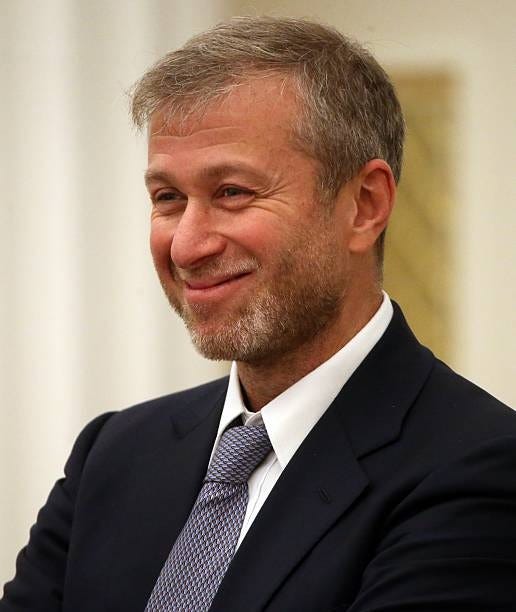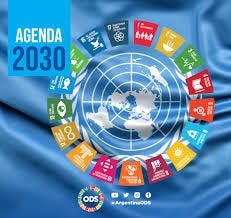Moldova on the Brink of War or Impossible Neutrality
by Iurie Roșca
Iurie Roșca analyses the precarious geopolitical situation in the Republic of Moldova in the context of potential Russian military threats, highlighting how both Russia and NATO, despite their conflict, remain equally obedient to international organisations such as the UN, WHO, etc. and synchronously promote the New World Order agenda.
Developments on the Ukrainian front show an imminent prospect of a collapse of the Ukrainian defensive line and a decisive offensive by the Russian army. One of Russia’s strategic targets is the port of Odessa. And in the event of a successful operation, the Russians officially declare that their next target is the separatist region in eastern Moldova bordering Odessa, Transnistria. There the Russians illegally maintain a military contingent, claiming to be peacekeepers and to protect the Russian-speaking population or even Russian citizens, the latter receiving Russian state passports en masse. Transnistria is a “frozen conflict” that risks thawing to the advantage of the Russian Federation and to the detriment of the Republic of Moldova. But what does that matter on the “big chessboard” in WWIII? Not for the rest of the world, but for my country it is a vital issue.
NATO has its own strategy for such a scenario: to push the Republic of Moldova and Romania — a NATO state neighbouring my country, with which we share the same history, culture and language — into war against Russia. Poland is also prepared to enter Ukraine with its troops as part of the same plan to counter the Russian offensive.
We note at the outset that the Republic of Moldova is a neutral country by its constitutional rule, and the stationing of foreign military troops on its national territory is prohibited. However, the force of the law has been countered with the law of force this time, too. For over three decades, Moscow has been imposing its role as “peacemaker” and mediator in a territorial conflict to which it is itself a party.
It is known that the Republic of Moldova is run by a network of what we call NGO-crats, George Soros’ children and US mercenaries. These individuals have been forced by their patrons in the West to violate Moldova’s status as a neutral country and develop aggressive rhetoric against Moscow, and even provide political and logistical support to the criminal regime in Kiev. During the two years of proxy war in Ukraine, Moldovan patriots have demanded that the authorities stop engaging in the conflict and respect the neutral status of our country, which requires fairness and impartiality in such armed conflicts. We were not heard. Moreover, we were told, and not without reason, that it is Russia which is the first to violate the neutrality of my country by its illegal military presence on our national territory. Of course, NATO and the Americans are in Romania, and the Russians have no reason to withdraw from Transnistria. Strategic reasons prevail over the constitutional norms of a small and vulnerable state like the Republic of Moldova.
At present, citizens of military age in the Republic of Moldova are receiving summonses to report to military commissariats to participate in some cantonments, and military exercises are taking place on our territory this month with the participation of Americans, Romanians and Moldovans. And this is justifiably arousing the outrage of citizens. The author of these lines has made a public appeal to young people of military age, suggesting that rebellion on social networks is insufficient. People need to come out en masse in peaceful protests in the centre of the capital and demand one of two things: either the country’s leadership respects neutral statehood or it resigns. Then followed another comment in which I reminded people when a patriot could go to war — namely, when the territorial unity and independence of the country are threatened. Where does this danger come from? Unfortunately, from Russia. This risk has not yet become a fait accompli, but it could become one at any moment. So what is a Moldovan man to do? Should he welcome the Russian army with flowers or fight back? For a Western patriot, such dilemmas do not arise; for us Moldovans they do.
Of course, we cannot exclude that a tragic scenario for my country can still be avoided, especially since there is intense talk about a partition of Ukraine between the Russians and the West. Officials in Moscow keep repeating that they are willing to sit down at the negotiating table at any time, apparently without preconditions. What could be the factor that would cause Russia to renounce an offensive on Odessa and implicitly annex Transdnistria and maybe even the whole Republic of Moldova? This factor could even have a name of its own — for example, Roman Abramovich, the London oligarch who always has an open door to the Kremlin. Who is he targeting? The City of London, British intelligence, the globalist oligarchy, the “deep state” — these would be euphemisms for the power centres that hired him as special envoy to Putin. I regularly observed his unannounced visits to the Kremlin, which invariably resulted in strange concessions from Moscow. I’ve also noticed him at EVERY Russian-Ukrainian negotiation in recent years, except that it’s never been made clear which of the two this character represents. The answer is that he represents a third party, which, throughout modern history, has always provoked wars and profited from them.
An important factor that could temper Russia’s military momentum could be China, which has not given up on its 12-point plan to end the war in Ukraine.
For the optimists who exclude such a prospect, I would only mention the strange and unexpected withdrawals of the Russians from Kiev, from the Kharkov and Kherson regions, the unprovoked and unfavourable prisoner exchanges on the Russian side, the observance of the taboos guaranteeing the personal security of Zelenski and the other members of the Kiev clique, etc. Under these circumstances, a Moldovan patriot comes to the paradoxical conclusion that Putin’s excessively conciliatory or even capitulating spirit could be to the advantage of the Republic of Moldova.
Moldova’s relations with Russia are further complicated by the permanent and methodical undermining of the territorial unity of the country by stimulating the conflict between the central authorities of the state and those of the region called the Gagauz administrative-territorial unit. We are talking about an area in the south of the country populated predominantly by a Turkic ethnic group of the Christian Orthodox religion, which traditionally shows an excessive attachment to Russia and, implicitly, a lack of loyalty to the Republic of Moldova. Such soft power à la russe seriously affects internal stability. Moscow is always ready to pour gas on the fire to dynamite my country from the inside. Russia does not recognise our partnership relations. We are too small. So we are offered either vassalage or, if we do not comply, territorial disintegration.
For the author of these lines, there can be nothing more abhorrent than the politics of the collective West. However, if we take into account the fact that, despite the major conflicts on the horizon between the West and Russia, both sides show the same blind obedience to the globalist vertical, then the equation becomes more complicated. Only the incurable enthusiasts, the blind and the naïve, can ignore the striking reality that both the collective West and Russia are meekly and in perfect harmony executing ALL the strategies of the Great Reset.
In the process of de-sovereignisation of ALL countries of the world under the UN’s baton, when the genocidal and liberticidal policy of the WHO is followed by both sides, a serious dilemma arises in the case of the Republic of Moldova. The West, unlike Russia, at least does not attack the territorial unity of my country, preferring economic and civilisational colonisation, which in any case leads to the Brave New World of dystopian and transhumanist digital heaven. However, while strategies such as the UN’s 2030 Agenda for Sustainable Development or the Pandemic Treaty are harder for the vast majority of the population to understand, external military aggression is easier to perceive. In other words, the non-military warfare of Western power centres is almost unnoticeable to the public, unlike Russia’s “hard” and hot war in Ukraine, with a possible extension to my country.
I know that such articles cannot change the cyclopean and worldwide view of the masters of geopolitical commentary in the West who are in the anti-globalist camp. For them, Putin’s Russia remains a hope and an alternative. I have no complaints. The right to be wrong is part of fundamental human rights. I have merely tried to sketch in these lines the tragedy of a frontier people devastated by the contradictions of two types of imperialism — Western and Russian.







Putin is not the future of Russia.